25 Beautiful Places in Utah You Have to See Because Photos Don’t Do Them Justice

Known as the land of Mormons and the Big 5 national parks, Utah is a state full of surprises when it comes to otherworldly landscapes. From my two years living in a van and of nearly 40 states I’ve been in the US, Utah is one of my absolute favorites.
While many people are familiar with popular destinations like Zion National Park and Bryce Canyon, I’ve roamed around the state long enough to have uncovered some lesser-known gems that are sure to make you fall in love with Utah even more.
I’ll still include the must-visits, but I will also include the strangest rock formations and hidden hot springs. Here are 25 of the most beautiful places in Utah you may not have heard of before but should definitely add to your travel bucket list.
1. Valley of the Gods
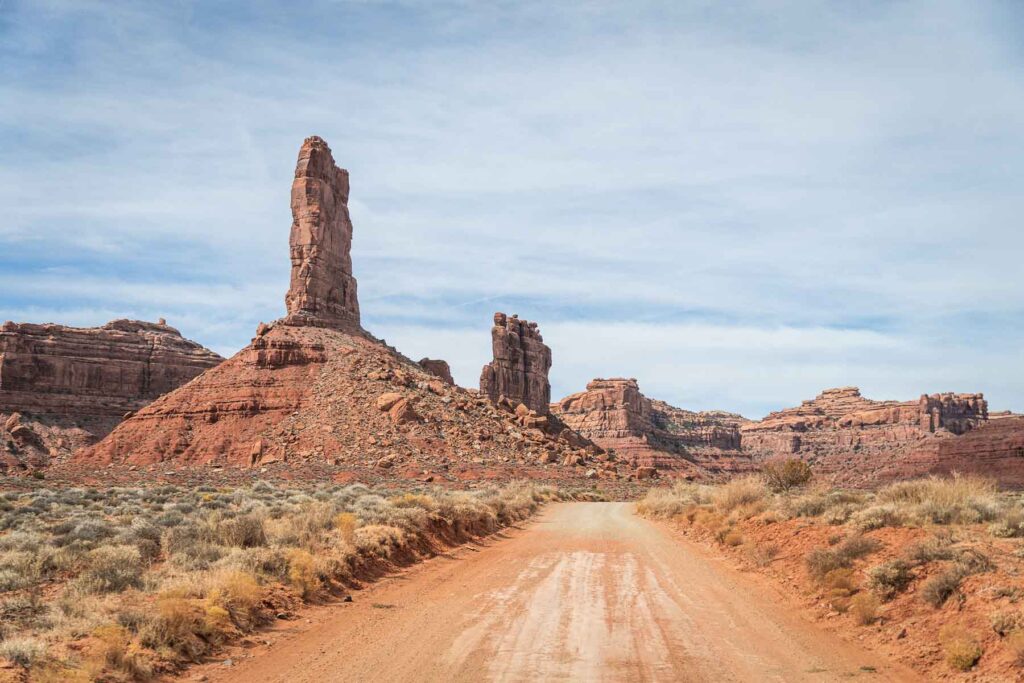
The Valley of the Gods is like a natural sculpture park with its towering rock formations and wide-open spaces. Imagine 12 miles of scenic dirt roads leading you past sandstone monoliths that stand up to 450 feet tall!
It’s a haven for anyone who loves a good road trip and some off-the-beaten-path adventure. While there are very few guided paths, you can just go off on your own and get lost in the buttes.
2. Bonneville Salt Flats
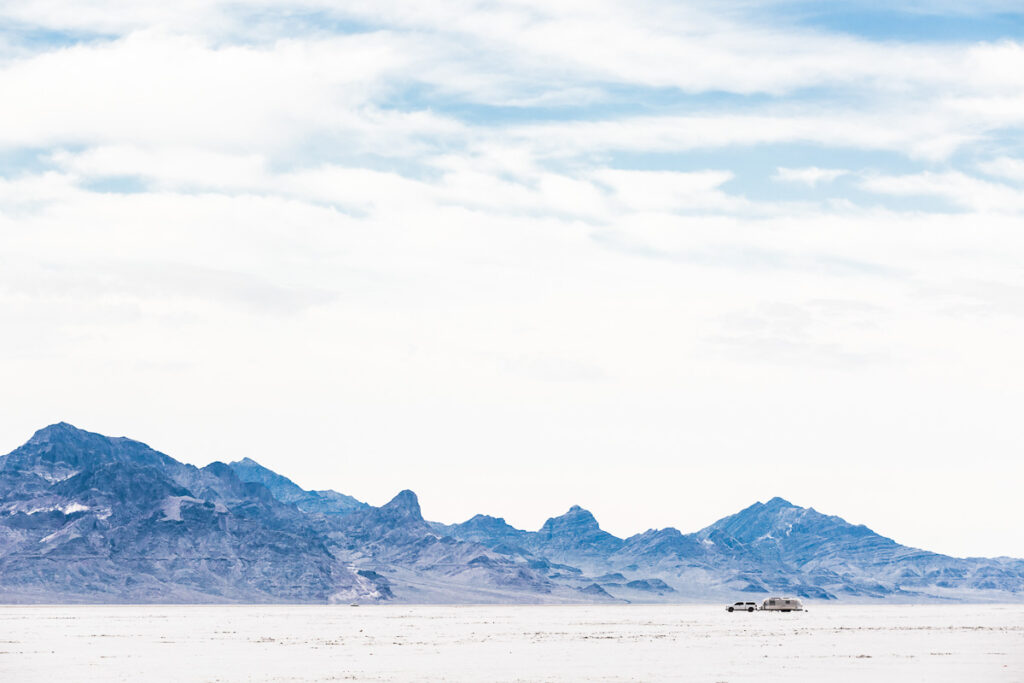
The Bonneville Salt Flats stretch over 30,000 acres of a seemingly endless expanse of white salt crust. This surreal landscape is almost as amazing as the super famous one in Bolivia called Uyuni Salt Flats. If you’re lucky and it just rained, the flats can create a mirror-like effect with the right amount of water, which is incredible at sunrise and sunset.
It’s not just a pretty sight; the perfectly flat surface makes it ideal for racing. Every year, it hosts Speed Week, where drivers attempt to set land speed records.
3. Bear Lake
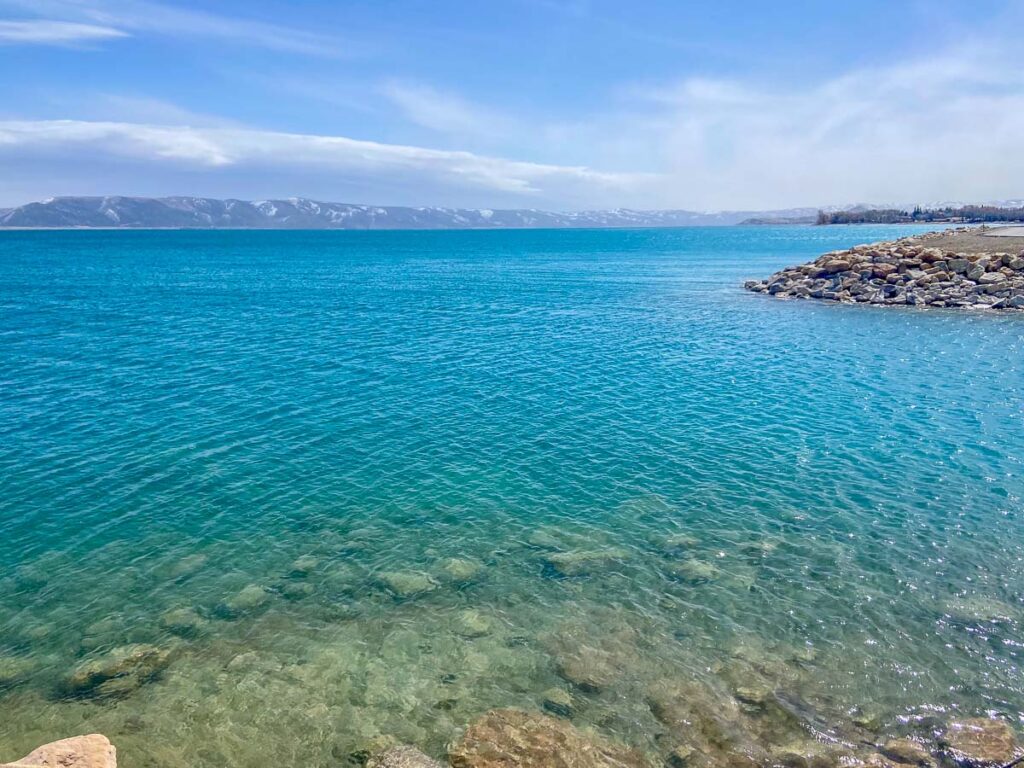
Bear Lake is often called the “Caribbean of the Rockies” because of its glimmering turquoise waters. Spanning over 109 square miles, this lake is perfect for all kinds of water sports—boating, fishing, jet skiing, you name it.
If you’re more of a landlubber, there are many places to hike and bike and, of course, lounge on the sandy beaches.
Don’t miss this local treat! Raspberry shakes here are legendary, thanks to the local raspberry farms.
4. Bentonite Hills
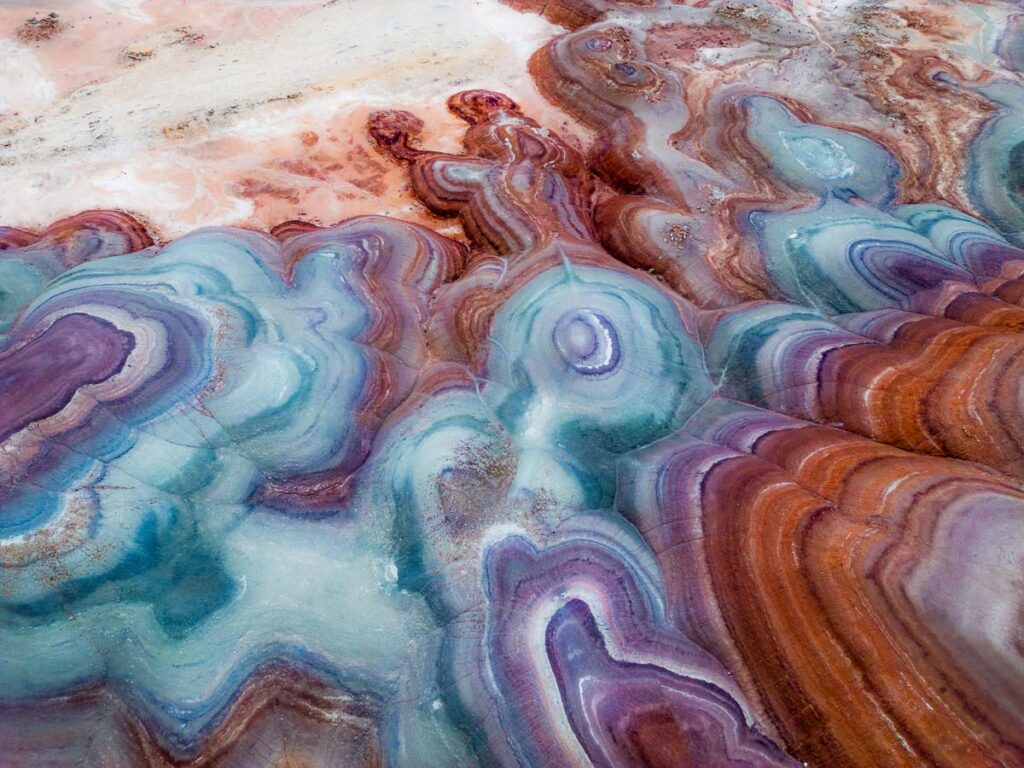
The Bentonite Hills look like something straight out of a sci-fi movie. The hills are vividly colored due to the mineral bentonite clay, creating stripes of red, orange, purple, and green. Although you’ll need a drone to see the full extent of the rainbow palette.
Hiking through this area feels like you’ve stepped onto another planet. The best part? You’ll often have it all to yourself as it’s extremely remote.
5. Buckskin Gulch
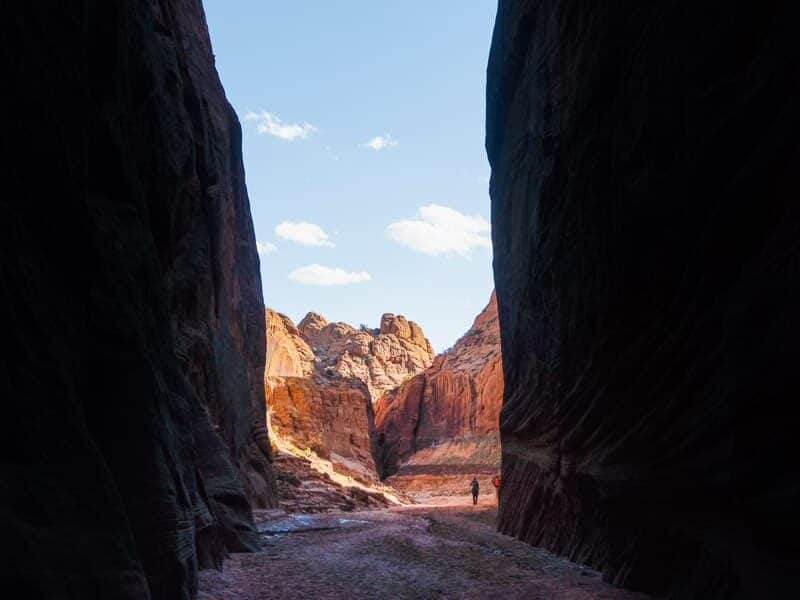
Buckskin Gulch is known as one of the longest slot canyons in the world, stretching for 13 miles. The canyon’s winding paths and patterns etched into the rock by centuries of water flow create a labyrinth.
Walking through the narrow passageways, which can be as tight as a few feet across, is a thrilling experience, with wall towers hundreds of feet above you. Be prepared. Sometimes, you may need to do some wading through water and scrambling over rocks.
6. Coyote Gulch
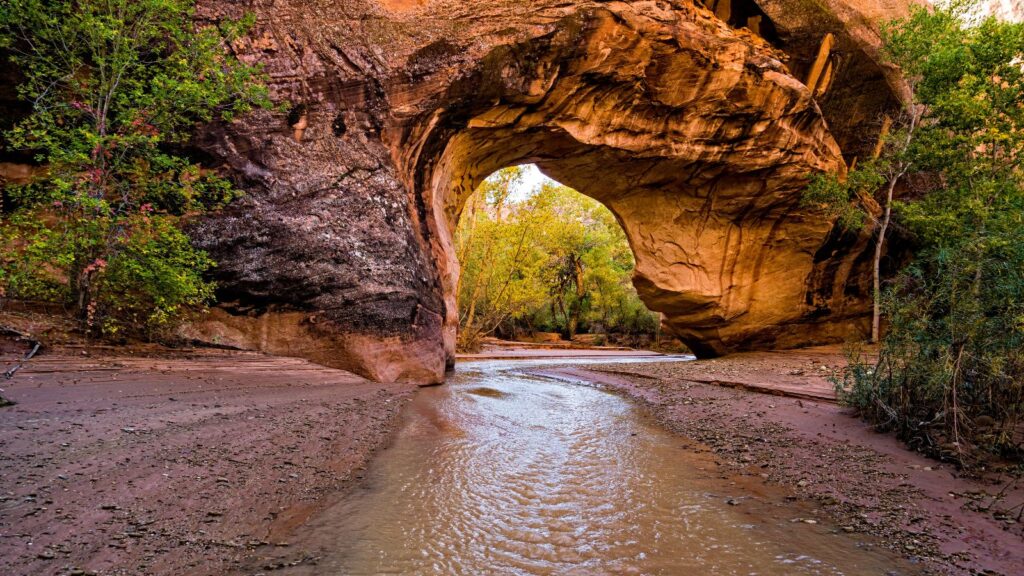
Coyote Gulch offers a mix of everything that makes the Utah wilderness special: arches, waterfalls, and tall canyon walls. This hike is about 26 miles round trip and brings you face-to-face with natural wonders like Jacob Hamblin Arch and Coyote Natural Bridge.
It’s considered one of the most beautiful areas in the Grand Staircase-Escalante National Monument.
7. Fifth Water Hot Springs
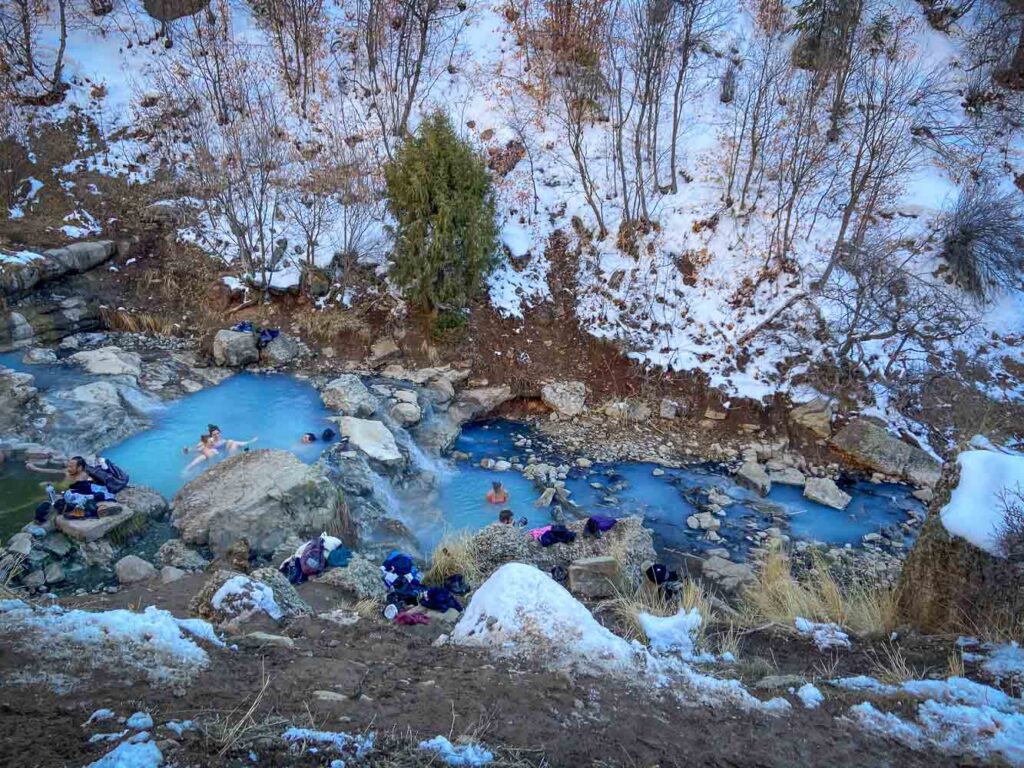
Fifth Water Hot Springs, also known as Diamond Fork Hot Springs, is a hidden gem around Salt Lake City and possibly the best natural hot spring I’ve ever been to. Scattered along a creek, these natural hot springs feature several different colored pools with varying temperatures.
The trail to get there is about 2.5 miles each way, but with road closures, it is much longer in the winter. The turquoise water is inviting, and even though it’s popular amongst locals, there are so many pools that everyone can have their own.
8. Reflection Canyon
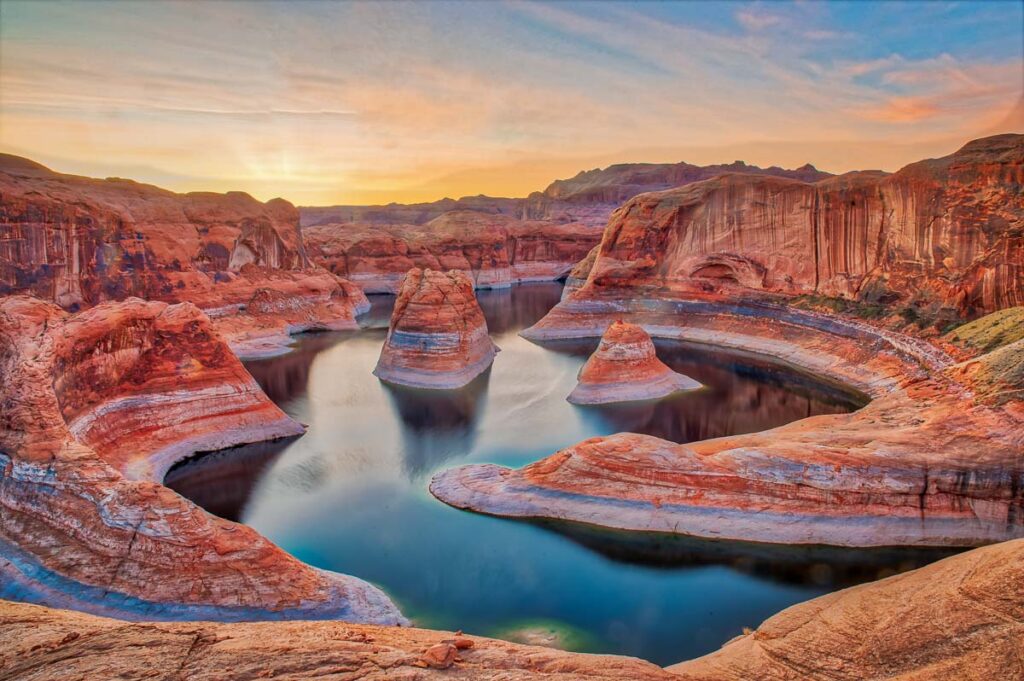
Reflection Canyon is a remote, beautiful arm of Lake Powell, which is an incredible Utah destination itself. This spot gained notoriety after a photograph by National Geographic photographer Michael Melford.
Getting there requires a challenging 14-mile round-trip hike, but the payoff is worth it. The view of the winding canyon and its reflection in the still water is not something you will forget.
9. Kanarra Creek Falls
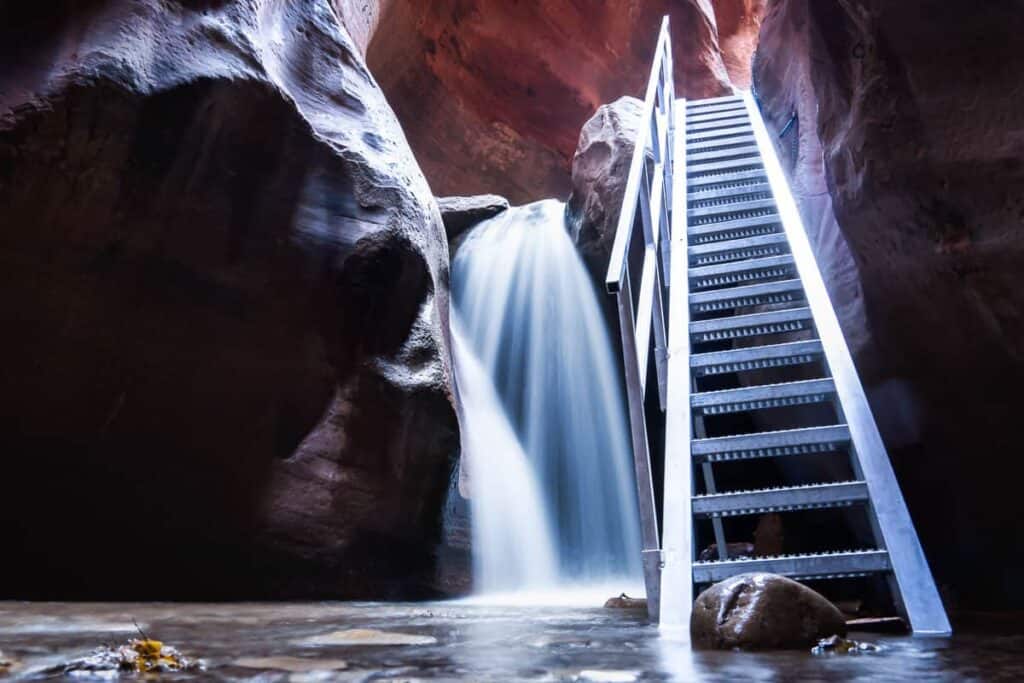
Kanarra Creek Falls combines the thrill of a slot canyon with the beauty of cascading waterfalls. It’s a mini-narrows alternative to Zion National Park with way fewer people. The hike is about 4 miles round trip and involves crossing the creek multiple times, so prepare to get wet!
One of the highlights is climbing a ladder next to a waterfall. The cool water and red rock formations make it a perfect summer hike, but we went in early spring and it was slightly too cold.
10. Peek-A-Boo Slot Canyon (Red Canyon)
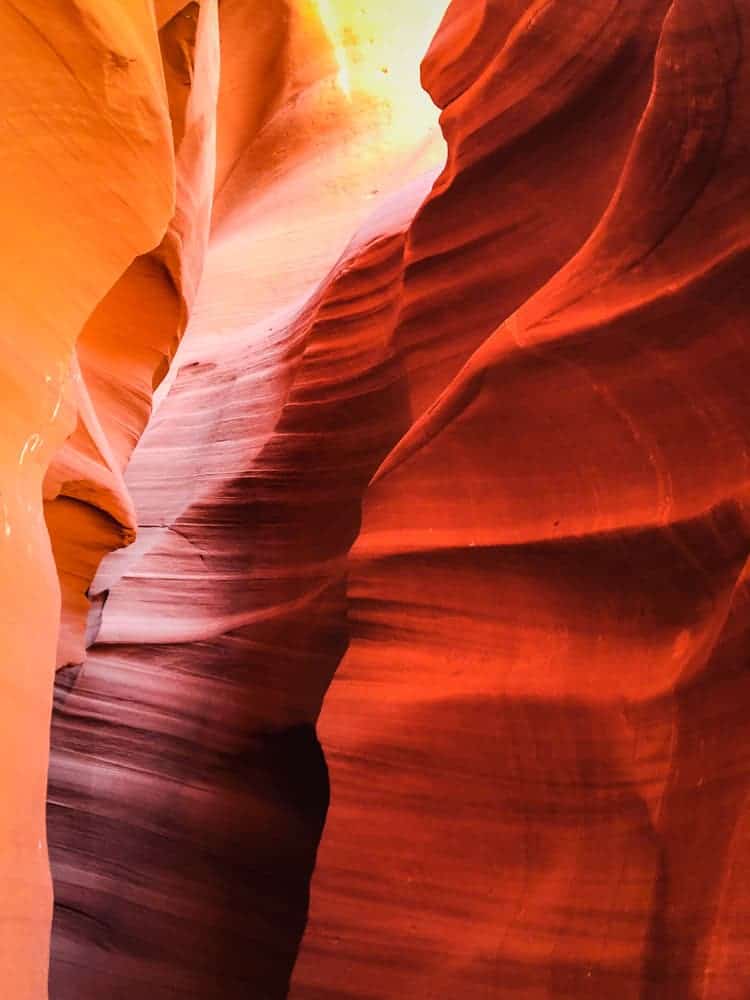
Peekaboo Canyon Kana, also known as Red Canyon, is one of the most legendary Kanab area slot canyon hikes. In the Grand Staircase-Escalante National Monument, this slot canyon is famous for its tight squeezes and beautiful rock formations. The hike is about 3 miles round trip, and you’ll need to scramble up and down rocks.
Wind and water beautifully sculpt the canyon walls, creating a maze-like experience. Some people even call Peek-A-Boo the uncrowded Antelope Canyon. With two sections to explore, make sure you reach the end.
Travel Tip! Deep sand terrain makes arriving at the trailhead tricky. You will need a 4×4 or to join a tour.
11. Alstrom Point
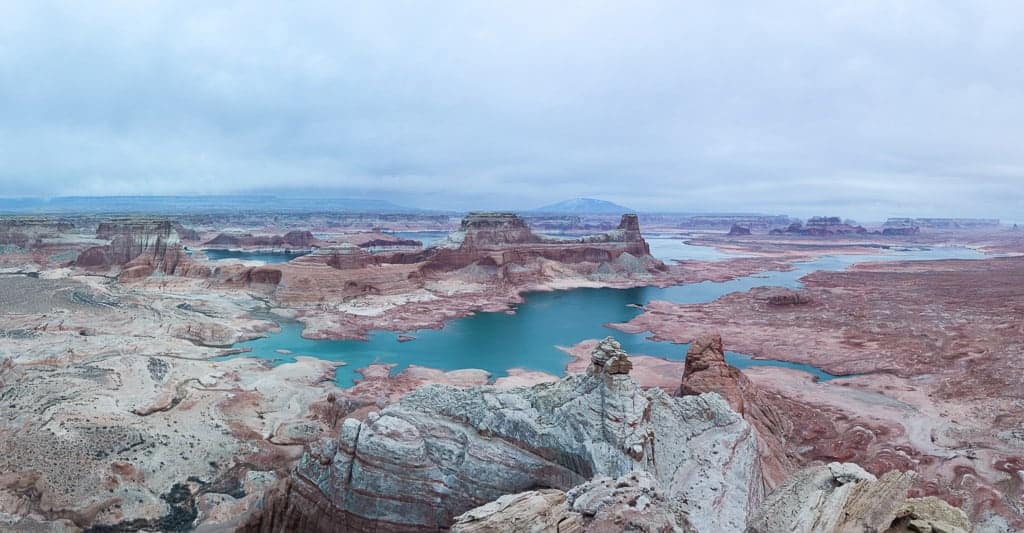
Pretty difficult to get to, it’s better to have a high clearance 4×4 and a great offline map to get here. But once you make it, Alstrom Point is my favorite view of Lake Powell’s vivid blue waters and the surrounding canyons. It’s quiet and peaceful, with only a handful of other visitors at any given time.
The best thing is that the entire area is BLM land, which means you can spend the night camping here and wake up to epic sunrises from the canyon.
12. Antelope Island State Park
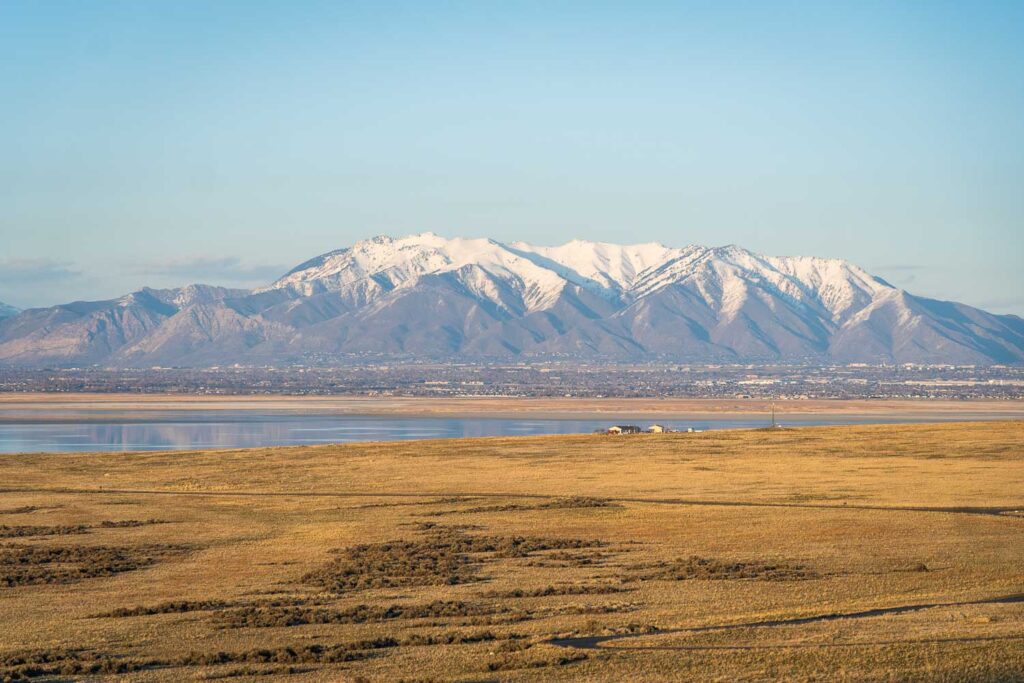
Antelope Island State Park, the largest island in the Great Salt Lake, is just north of Utah’s capital city. It’s home to free-roaming bison herds that can reach up to 700 animals. The island also teems with other wildlife, and the landscape ranges from expansive grasslands to sandy beaches.
Hike up Frary Peak to the island’s highest point at 6,596 feet, or you can see the historic Fielding Garr Ranch House, established by Mormon pioneers in 1848.
13. Dead Horse Point State Park
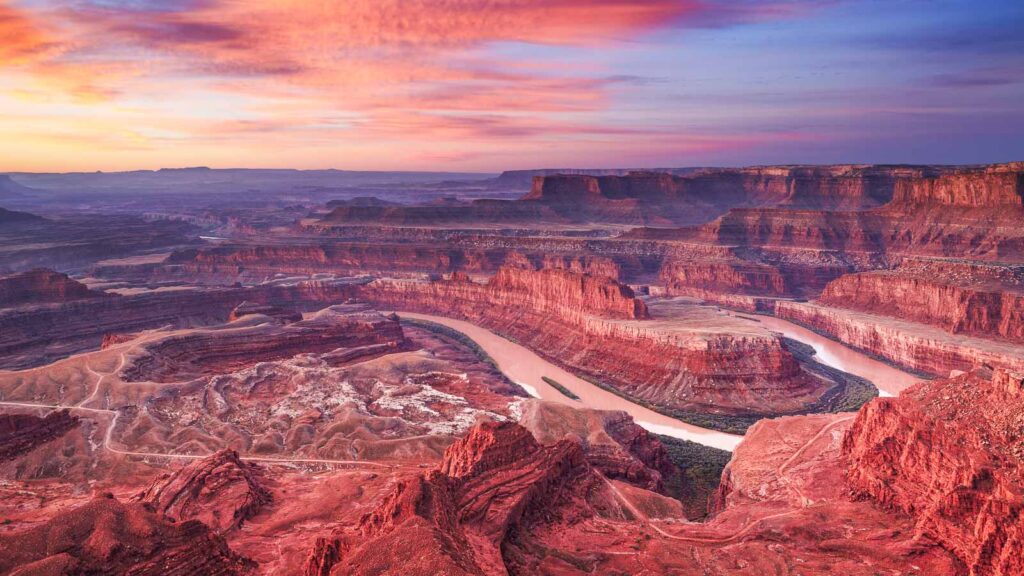
Although small, the park’s namesake overlook sits 2,000 feet above the Colorado River, giving a panoramic view of the meandering river and surrounding canyons. Right outside of Moab, Dead Horse Point State Park is a great quick stop on your day trip to Canyonlands or Arches itinerary.
Legend has it that the name comes from cowboys who once used this point as a natural corral for wild mustangs.
14. Goblin Valley State Park
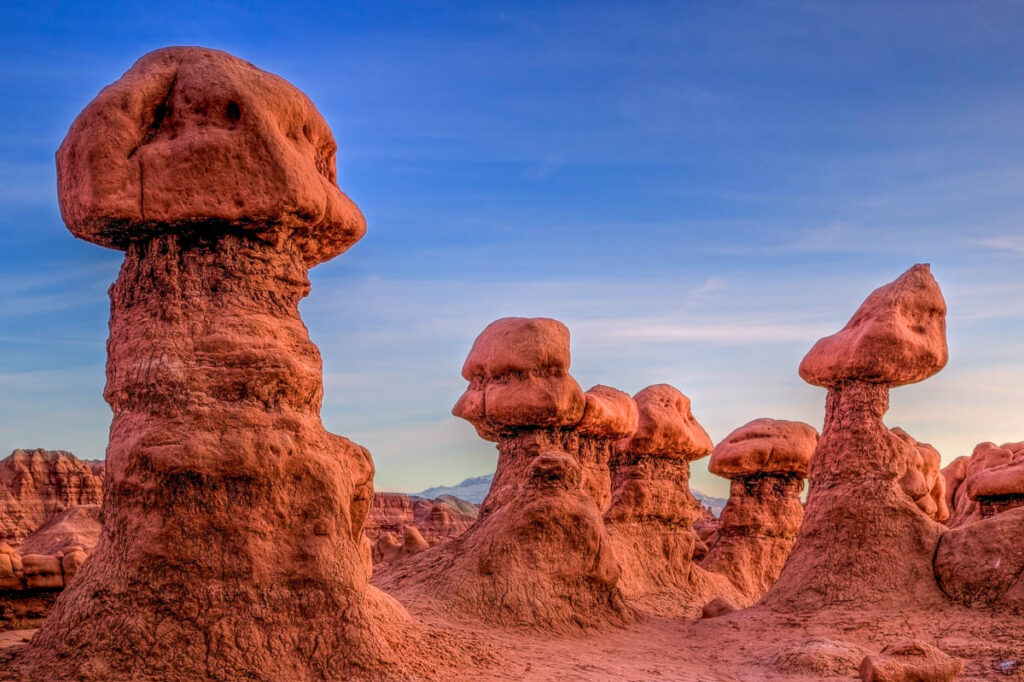
Goblin Valley State Park is a unique landscape filled with mushroom-shaped rock formations known as hoodoos. These “goblins,” as they’re called, were formed through centuries of erosion and weathering. The park spans 3,654 acres, and its eerie yet fascinating terrain is perfect for wandering through the maze of rock shapes.
15. Snow Canyon State Park
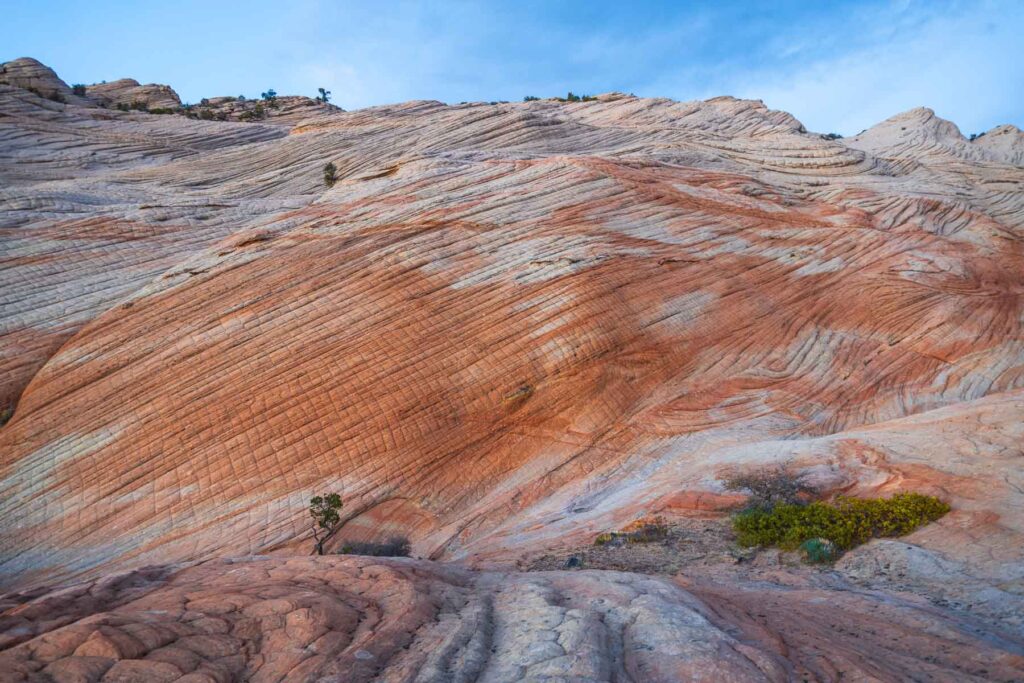
I’ve heard it said that if Snow Canyon wasn’t right next to Zion, this state park would be a national park in its own right. It’s filled with a striking contrast of red and white Navajo sandstone cliffs, black lava flows, and sand dunes. The park’s canyon is named after early Utah leaders Erastus and Lorenzo Snow, not because of snow itself.
Spread across 7,400 acres, there are more than 38 miles of hiking trails, plus cycling and horseback riding opportunities. You’ll find lava tubes to explore, petrified sand dunes to climb, and plenty of wildlife to spot.
16. Coral Pink Sand Dunes state Park
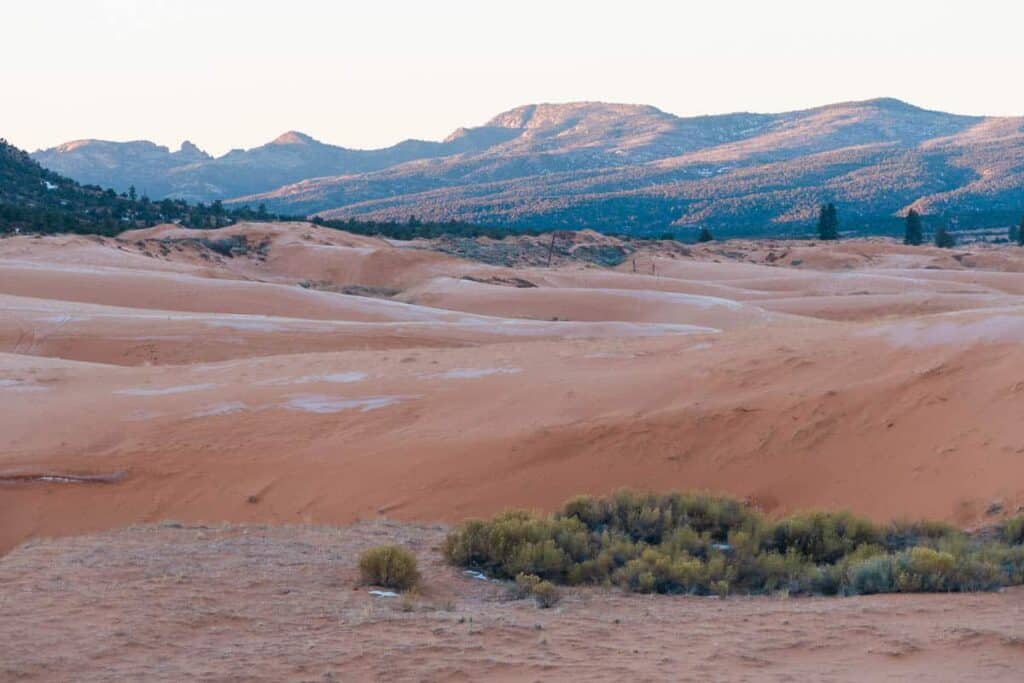
If you come in the early mornings, the miles of rolling sand dunes at Coral Pink Sand Dunes State Park glow with a pinkish-orange hue. As the sun rises, the sand becomes more normal, but sunset brings back the unique hue.
The dunes, formed from the erosion of Navajo Sandstone, are constantly changing shape due to the wind. It’s a popular spot for sandboarding and ATV riding with dunes that reach up to 700 feet above the valley floor.
17. Cedar Breaks National Monument
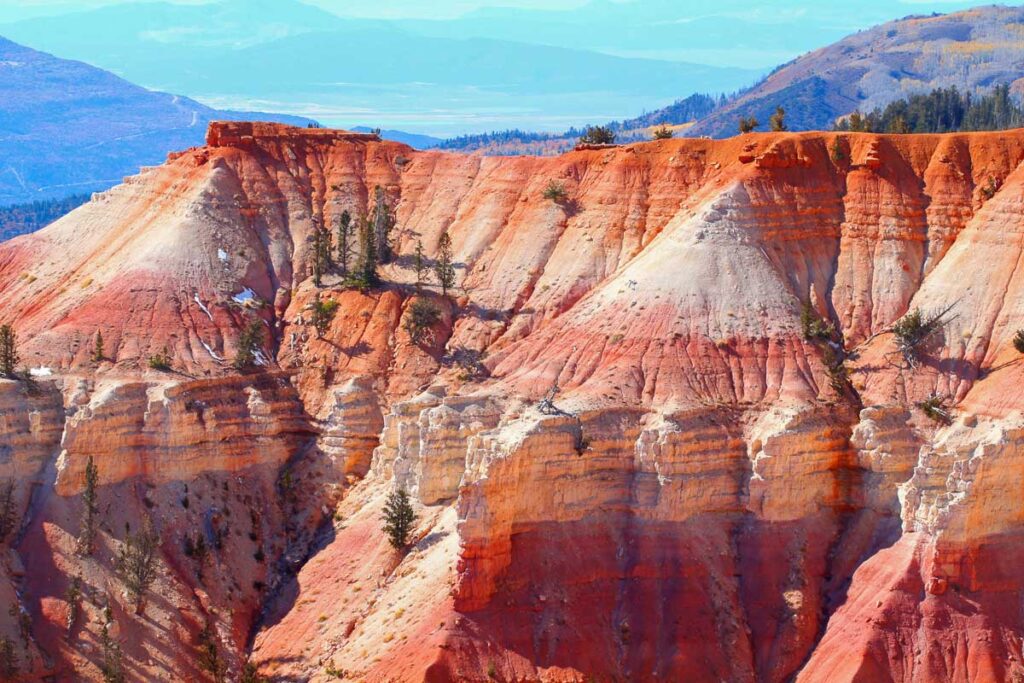
Cedar Breaks National Monument is a natural amphitheater that plunges 2,000 feet deep and stretches three miles across. Covered in brilliant colors, the rock formations here resemble a smaller, yet no less impressive, version of Bryce Canyon.
At over 10,000 feet elevation, the park offers cool respite in summer and becomes snowy in winter. Hiking trails like the Spectra Point and Ramparts Overlook Trail give spectacular views of the amphitheater and surrounding forests. It’s also a designated Dark Sky Park, perfect for stargazing.
18. Dinosaur National Monument
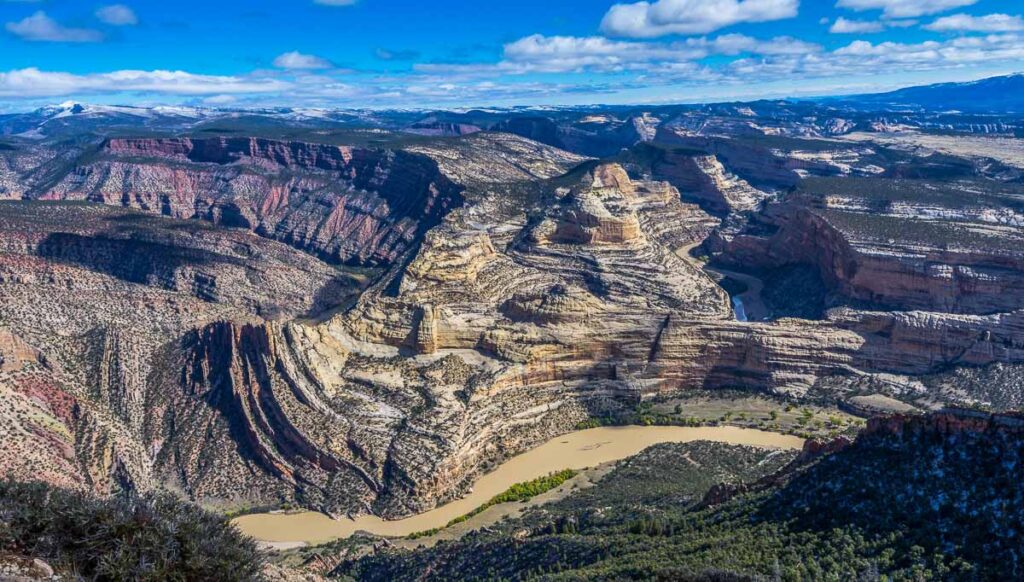
Dinosaur National Monument straddles the Utah-Colorado border and has incredibly well-preserved dinosaur fossils. The Quarry Exhibit Hall displays over 1,500 bones embedded in the rock.
The monument covers 210,844 acres, and the Green and Yampa Rivers carve through rugged canyons, which is great for rafting and fishing. Petroglyphs and pictographs left by ancient cultures add a historical dimension to your visit.
19. Natural Bridges National Monument
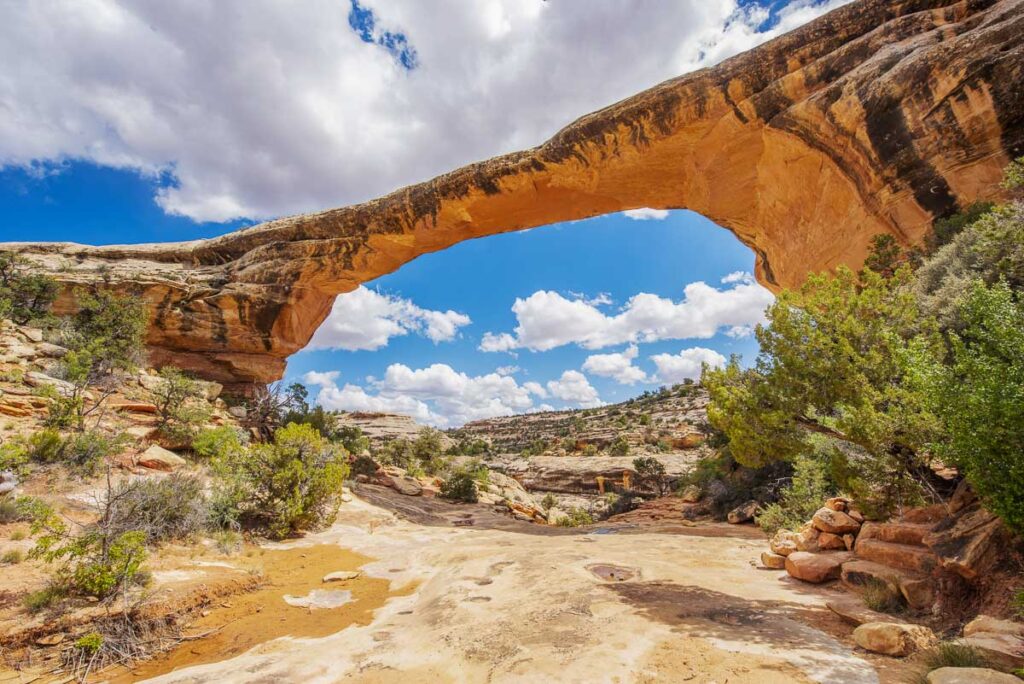
Natural Bridges National Monument is known for its three massive natural bridges: Sipapu, Kachina, and Owachomo. These sandstone formations, created by water erosion, are some of the largest in the world.
Several hiking trails provide different perspectives of the bridges, and a scenic loop drive provides easy access to overlooks and trailheads. The night skies are incredibly clear!
20. Rainbow Bridge National Monument
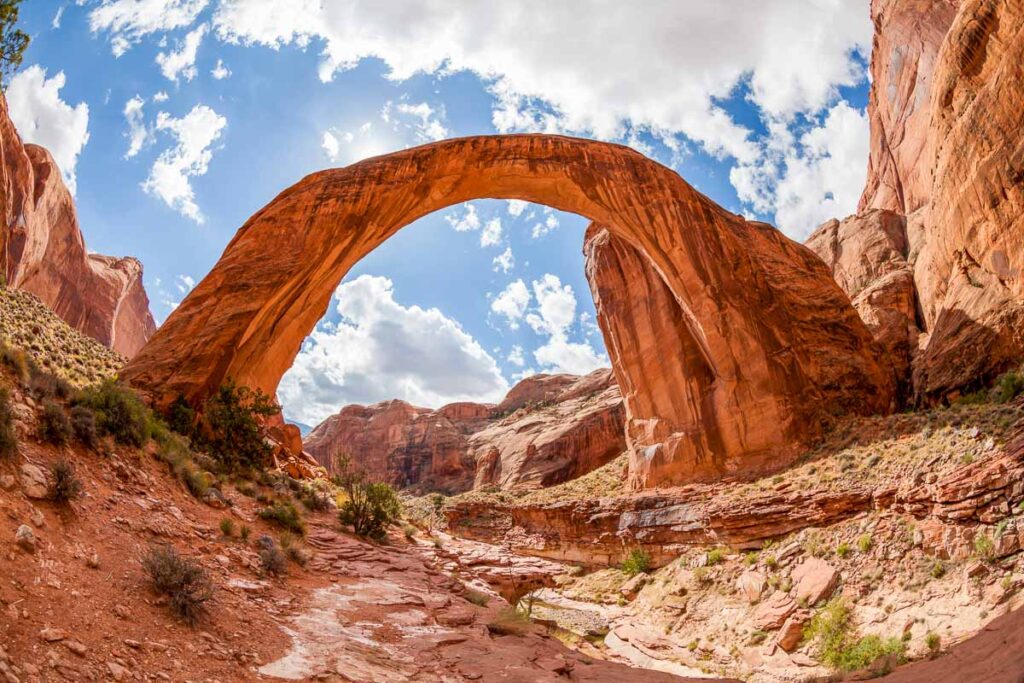
Rainbow Bridge National Monument is home to one of the world’s largest natural bridges, spanning 275 feet across and standing 290 feet tall. Accessible primarily by boat on Lake Powell or via a tough hike, it’s a sacred site for Native American tribes in a really remote location.
The bridge’s symmetrical arch is an impressive sight against the backdrop of rugged canyon walls.
21. Zion National Park
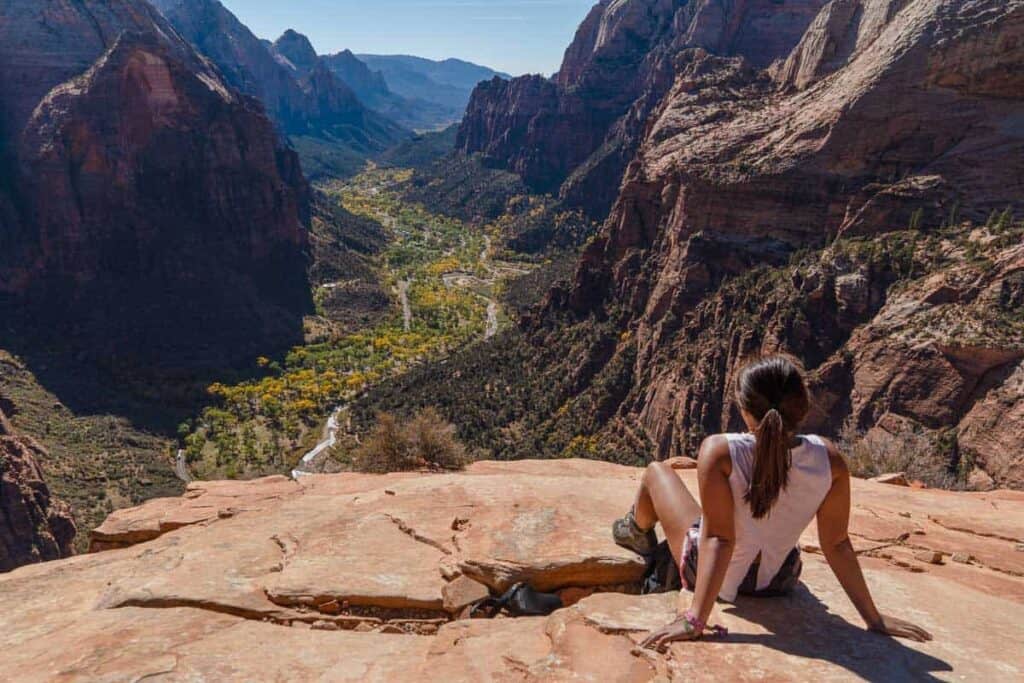
Zion is one of the most visited national parks in the country, and people come from all over the world to see its red rock monoliths and deep canyons.
The iconic Angels Landing trail is one of the toughest hikes in the country, with heart-stopping views from its 1,488-foot summit. The Narrows, where you wade through the Virgin River between towering canyon walls, is another must-do.
For more advanced hikers who can get a very difficult-to-get permit, Subway Hike is a very strenuous hike that will require rappelling and climbing skills.
22. Bryce Canyon National Park
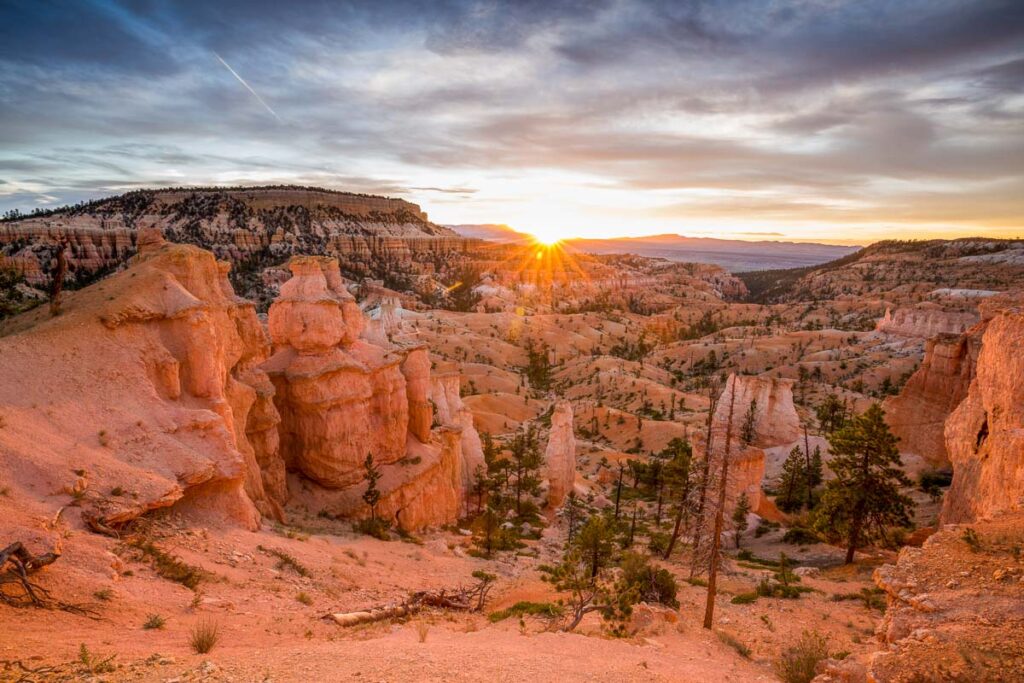
Bryce Canyon National Park is famed for its otherworldly landscape of hoodoos—tall, thin rock spires that create a labyrinth of color and shape.
The park’s amphitheater is the main attraction, best viewed from Sunrise, Sunset, Inspiration, and Bryce Points. The Navajo Loop and Queen’s Garden are the best trails to take you through the red rock formations.
At an elevation of 8,000 to 9,000 feet, the park has cooler temperatures and clearer air. Due to the low light pollution, stargazing is phenomenal here.
23. Arches National Park
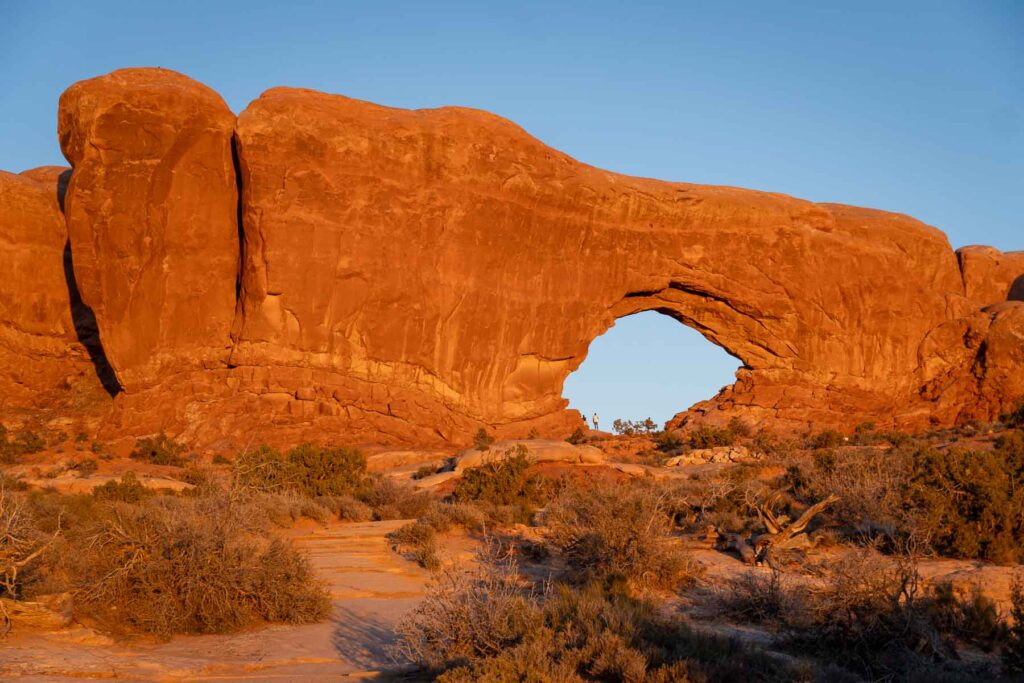
Arches National Park is like a giant natural playground with over 2,000 stone arches. The park’s star attraction is Delicate Arch, a free-standing arch 46 feet tall in a sandstone bowl.
Don’t miss the Windows Section, where you can explore Double Arch and other impressive formations. The Devil’s Garden Trail is another highlight, where you can see Landscape Arch, one of the world’s longest natural spans.
24. Canyonlands National Park
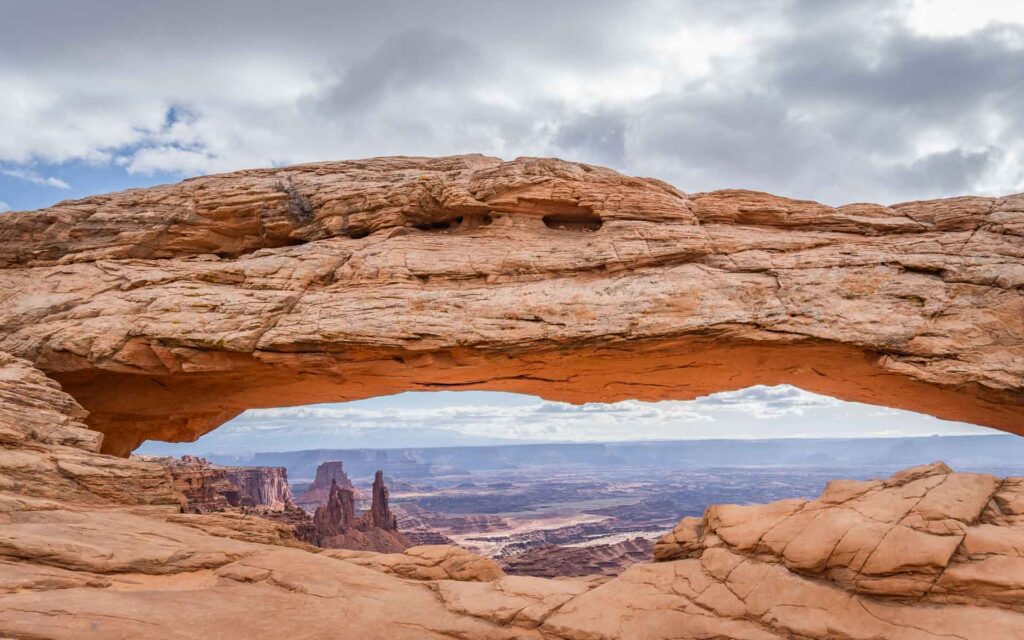
Canyonlands National Park is a vast, rugged landscape divided into five distinct districts: Island in the Sky, The Needles, The Maze, Horseshoe Canyon, and the Green and Colorado Rivers.
Island in the Sky is the most accessible and popular with dramatic overlooks, like Grand View Point and seeing the sunrises from Mesa Arch. The Needles district features colorful spires of rock and challenging trails like Chesler Park Loop. For the truly adventurous, The Maze is a remote labyrinthine experience, while you can go white water rafting on the Colorado or Green Rivers.
25. Capitol Reef National Park
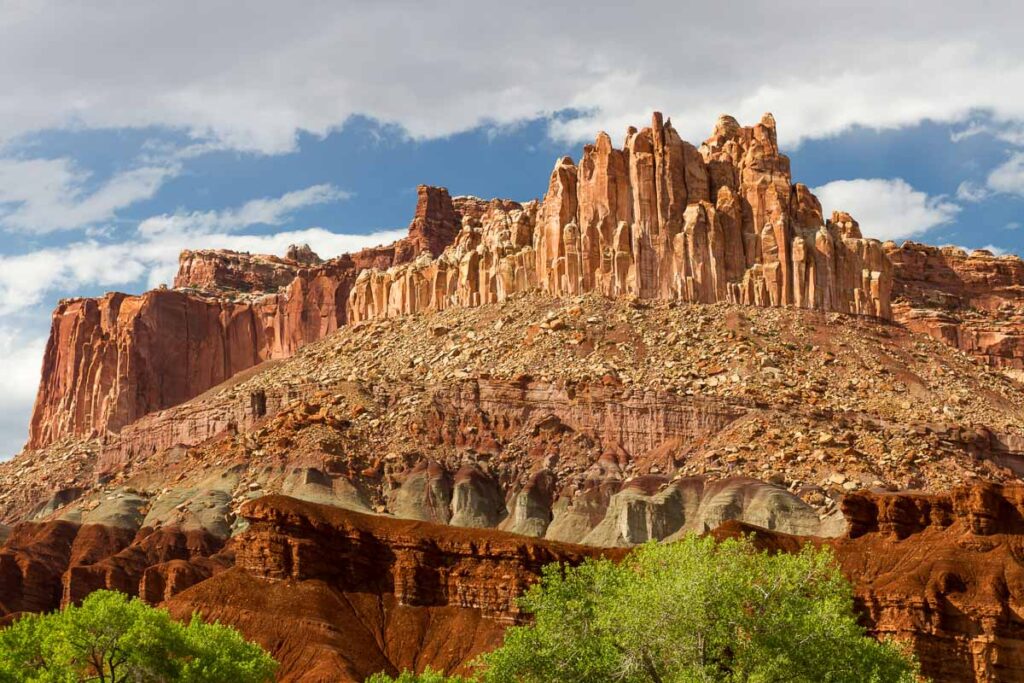
Capitol Reef National Park is Utah’s least visited national park. Known for its Waterpocket Fold, a nearly 100-mile-long wrinkle in the Earth’s crust., the park is a mix of scenic drives, hikes, and historical sites.
The Capitol Gorge Trail takes you through narrows and past ancient petroglyphs left by the Fremont people. Pick fruits at the orchards in the Fruita Historic District, which were planted by early Mormon settlers. Don’t miss the Cassidy Arch if you haven’t had enough arches!
Catherine, a seasoned travel writer, has lived in 4 different states and explored 36 states and 28 national parks. After spending two years embracing van life, she's now dedicated to sharing her vast knowledge of day trips across America. Catherine's other works has been referenced in major publications like MSN, Self, and TripSavvy.
| MY FAVORITE TRAVEL RESOURCES |
✈️ Find amazing guided tours and experiences with Viator to maximize your time! 🏘️ Plan ahead and secure your accommodation with Booking.com in advance. 🧾 Rent a car with Discovercars in advance and get the best prices for your day trip adventures. |

